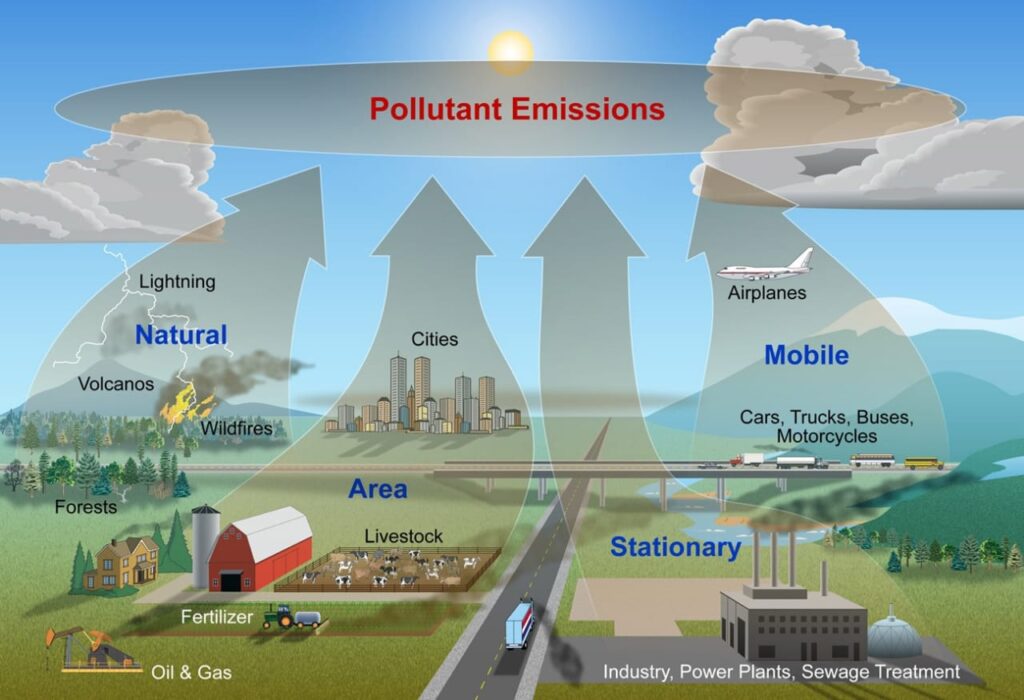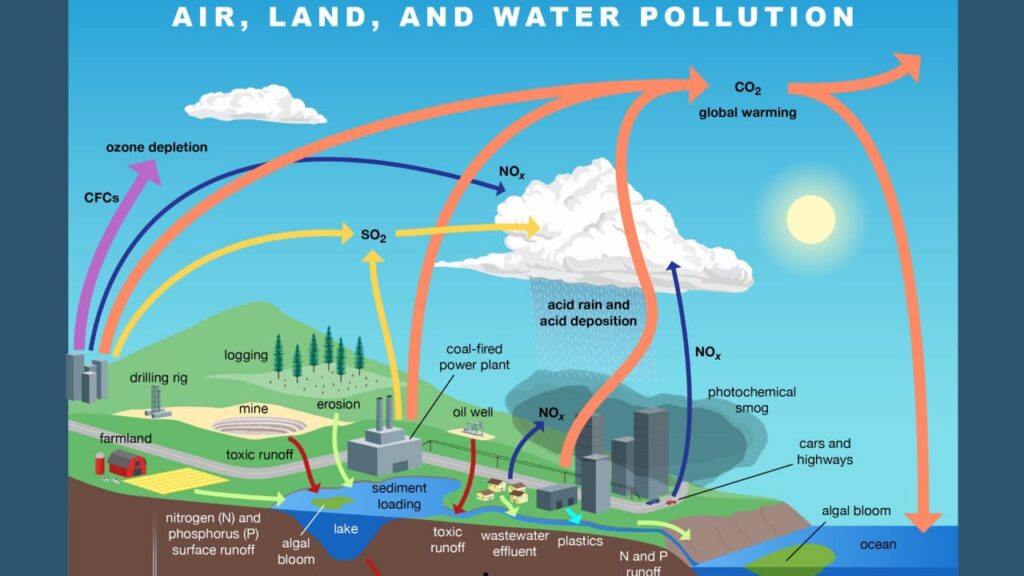Pollution
The Impact of Pollution on Human Health

What is Pollution:
Pollution is the presentation of hurtful substances or items into the climate. Thus, it can come in many structures, including air contamination, water contamination, and soil contamination. It can have a significant impact on human health, both in the short and long term.
Health problems:
Short-term exposure to it can cause a variety of health problems, including:
Eye, nose, and throat irritation
Coughing and wheezing
Difficulty breathing
Chest pain
Dizziness and fatigue
Headache
Nausea and vomiting
Long-term exposure to lead to more serious health problems, such as:
Children, the elderly, and people with chronic health conditions are particularly vulnerable to the health effects of it.
Types of Pollution:
Air:
Air is the most common leading environmental cause of death worldwide. Thus, the World Health Organization estimates that air causes 7 million premature deaths each year.
Water:
Water contamination can likewise fundamentally affect human wellbeing. Thus, drinking contaminated water can cause a variety of diseases, including cholera, typhoid, and dysentery. Water can also lead to cancer and other chronic diseases.
Soil:
Soil can also be harmful to human health. Exposure to contaminated soil can cause a variety of health problems, including skin irritation, respiratory problems, and cancer.

Impact of pollution:
Thus, there are a number of things that can be done to reduce the impact of pollution on human health, including:
How to Control Pollution:
Reducing emissions from vehicles and industry
Promoting the use of clean energy sources
Improving waste management
Protecting forests and other natural areas
Educating the public about the health risks of it and how to reduce their exposure
By taking these steps. Thus, we can help to create a healthier environment for everyone.

Collusion:
- Respiratory problems: Air can irritate the lungs and airways, leading to respiratory problems such as asthma, bronchitis, and pneumonia. It can also worsen existing respiratory conditions such as emphysema and chronic obstructive pulmonary disease (COPD).
- Heart disease: Air can damage the heart and blood vessels, increasing the risk of heart disease, stroke, and other cardiovascular problems.
- Cancer: Air has been linked to an increased risk of lung cancer, as well as other types of cancer, such as bladder cancer and leukemia.
- Neurological problems: Thus, air has been linked to a variety of neurological problems, including cognitive impairment, Alzheimer’s disease, and Parkinson’s disease.
- Reproductive and developmental problems: Consequently, air has been linked to a variety of reproductive and developmental problems, including infertility, birth defects, and low birth weight.
